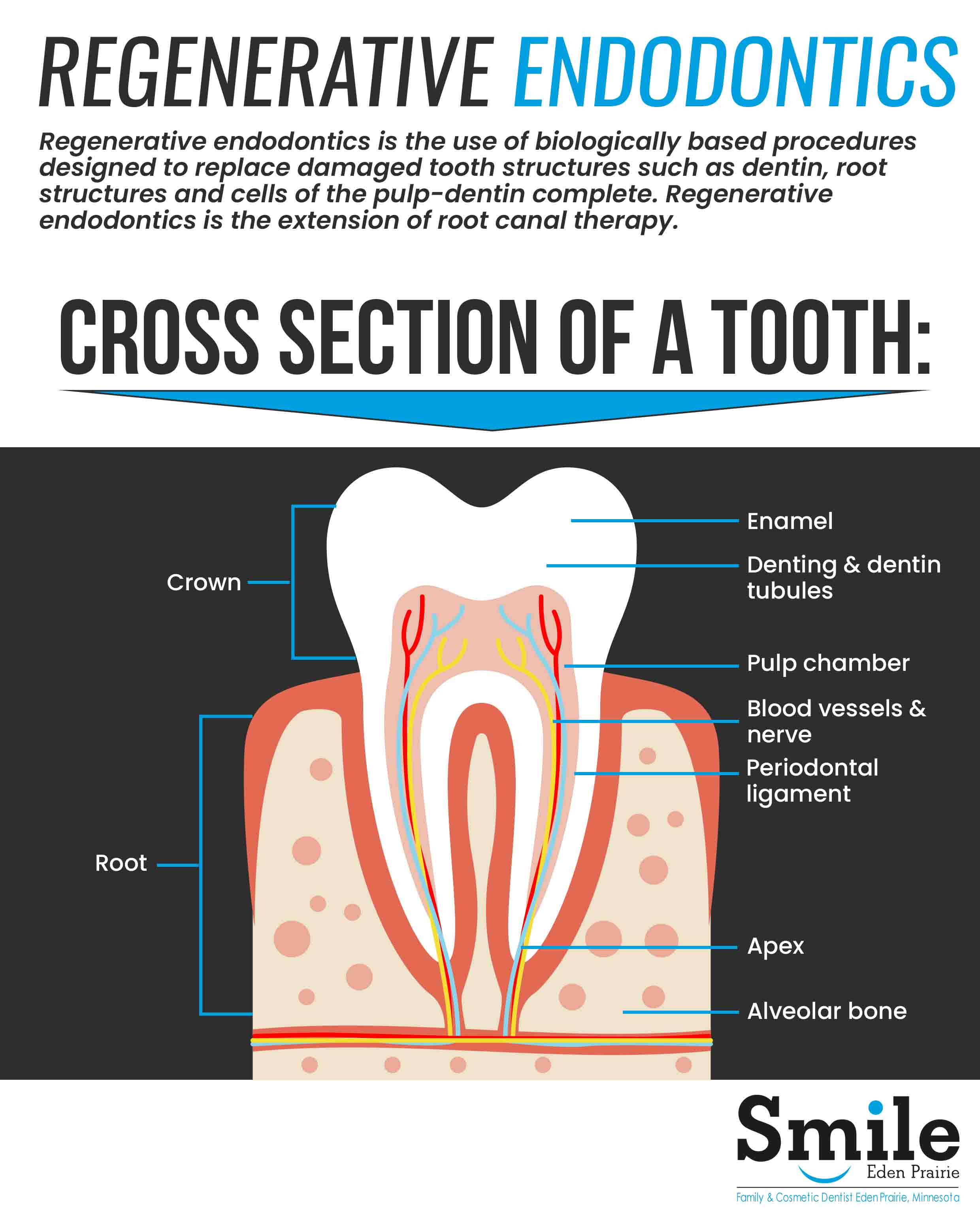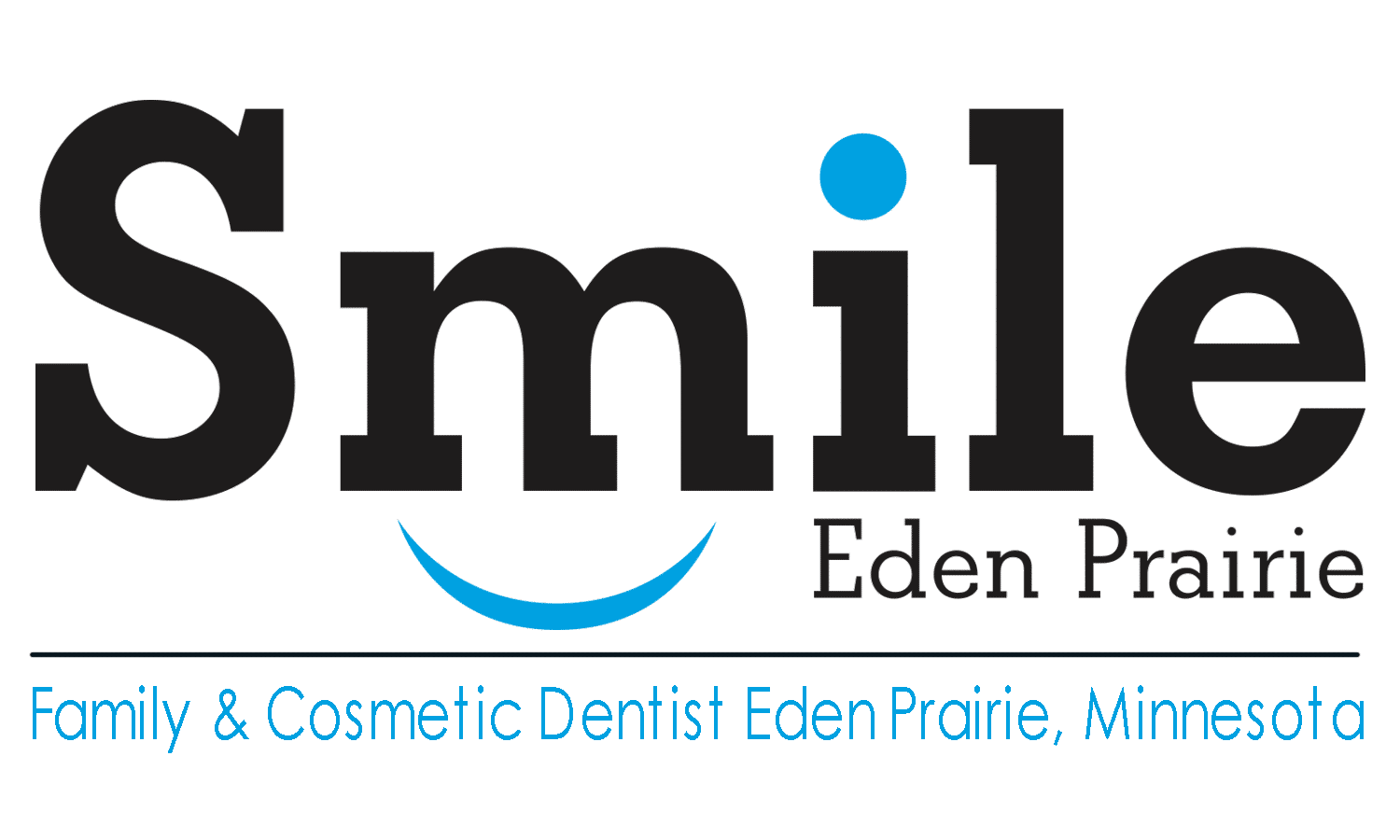General Dentistry Concepts: Regenerative endodontics
Regenerative endodontics is the use of biological procedures which are designed to replace damaged tooth structures. These structures can include dentin, root structures and cells of the pulp-dentin complete. Regenerative endodontics is considered to be an extension of root canal therapy. Conventional root canal therapy cleans the pulp chamber and fills it with biologically inert material following the destruction of the pulp caused by dental caries, congenital deformity or trauma. Regenerative endodontics works to replace the live tissue within the pulp chamber.
In order to replace live tissue, existing cells of the body are stimulated to regrow the tissue native to the area. Alternatively, bioactive substances are inserted into the pulp chamber. This process includes stem cell therapy, growth factors, morphogens, tissue scaffolds and biologically active delivery systems.
Apexification and apexogenesis are closely related to the field of regenerative endodontics. When the dental pulp of a developing adult tooth dies, root formation stops and leaves an open tooth apex. Attempting to complete a root canal on a tooth which has an open apex is very difficult technically and the tooth has a poor long-term prognosis.
Apexogenesis, leaves one-third of the dental pulp in the tooth which allows the root to completely form. Apexification stimulates cells in the area of the tooth to form a dentin-like substance over the apex. Both procedures improve the long-term prognosis for the tooth more successfully than a root canal.
Pulp treatment aims to keep the tooth structure intact and to preserve optimal function. Pulp treatment also works to maintain the vitality of damaged teeth from dental caries or trauma. This is especially critical in cases that deal with immature permanent teeth. Maintaining the pulp is vital for continuous root development and apical closure. In the event that the pulp of immature permanent teeth is infected, apexification which removes the infected pulp and applies a calcium hydroxide can be performed traditionally. Calcium hydroxide is the preferred material used to close the apical foramen. While apexification can induce apical closure, it unfortunately cannot maintain the pulp’s vitality. Regenerative endodontic treatment procedure has been recently suggested as it replaces the damaged pulp tissue with viable tissue. This is especially common when the tooth is damaged as a result of trauma. Pulp regenerative endodontic treatment is performed because the pulp tissue is not infected and can be maintained. When apical periodontitis is associated with a tooth infection, regenerative endodontic treatment procedures are not a viable option. In a recent case report, continuous root development and apical closure with the application of antibiotics was demonstrated. Procedures which were used in this case report are based on the ability for stem cells to self-regenerate. Stem cells are being used to induce pulp regeneration and have had promising results in treating immature permanent teeth in a conservative way.
In apexification, calcium hydroxide is used as an intracanal medication. The medication should be replaced every three months, and additional follow-up is required. The long-term application of the intracanal medication increases the possibility of fracturing the root in addition to developing defects in the root walls because of its porous characteristics. Regenerative endodontic treatment can, however, result in complete root development after a short-term treatment procedure. As a result, regenerative endodontic treatment can increase the length and thickness of the root.
Regenerative endodontic treatment is a procedure where the root canal is disinfected with antibiotics. Multiple aerobic and anaerobic bacteria can cause the infection of the root canals. Because of the different bacteria which can be present, it is difficult to effectively disinfect the canals with a single antibiotic.

